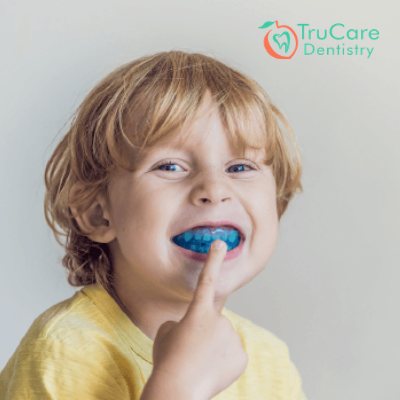Football, baseball, basketball, soccer, and boxing-related injuries cause most emergency room visits involving athletes under the age of 19. Every year, 3 to 11 percent of school kids end up in hospitals with some or the other kind of sport-related injury. Most reported accidents are related to the face, knee, finger, head, and ankle. Concussions, scrapes, bruises, and broken bones are commonly diagnosed, and so are dental and orofacial injuries.
Commonly reported sports mouth injuries
The American Association of Endodontists’ data indicates that roughly five million Americans lose teeth every year due to sports-related accidents. Tooth intrusion, cracked teeth, and fractured roots make it in the list of top five issues caused due to these mishaps.
- Fractured or cracked teeth
An abrupt blow to the face while playing contact sports can result in a cracked or fractured tooth. The severity of the damage may vary from one accident to the other. A severe injury may result in long term problems for children as well as adults.
Longitudinal cracks on the enamel are not considered a severe threat, but a split or crack that begins from the crown and extends downward needs immediate attention.
Fluctuating tooth pain, cracks on enamel that expose the dentin layer or tooth root are signs that indicate a cracked tooth. Such patients also experience pain while eating, drinking hot and cold food items. People who experience these symptoms should immediately opt for a dental check-up so that the dentist can examine the same and recommend the best treatment.
If required, dentists check for signs of cuspal fracture and recommend a root canal or tooth extraction to avoid bacterial infection.
- Fractured root
At times, sports injuries can also result in a fractured root. In such a case, the crack begins near the root and moves towards the chewing surface. Patients often realize the problem only when the infection starts developing. Such individuals need to go for root canal therapy as soon as possible because the fracture may remain invisible to the naked eye. Only a root canal (endodontic treatment) can save the tooth.
- Tooth intrusion
Dental intrusion happens when the tooth gets driven back in the jawbone as a result of the injury. It is common in children involved in sports as the alveolar bones holding the tooth socket are not hardened enough.
Such severe displacement injuries need immediate attention to avoid long-term dental issues. Depending on the severity of the injury, the pediatric dentist would recommend splinting or orthodontic extrusion, surgery, or other treatments for repositioning the affected tooth.
How can mouth guards help in reducing dental injuries?
Young athletes are 1.6 to 1.9 times more vulnerable to orofacial injuries when they do not wear a mouthguard. Studies have already proved that sports-related dental injuries can be considerably reduced with the help of mouthguards.
Thanks to the NCAA, using mouthguards is mandatory for participants in ice hockey, field hockey, men and women’s lacrosse. The International Academy of Sports Dentistry, as well as the American Dental Association, recommends using mouth protection devices for participating in 30 activities. The list also includes basketball and baseball. However, a minimal number of participants follow the recommendation.
A mouthguard can protect players from injuries related to cheeks, lips, gums, tongue, and teeth. Some athletes avoid using mouth protection devices because they feel these units affect communication, breathing, and cause discomfort. However, there is no research work or studies that support these claims suggesting these devices can cause severe breathing problems during physical activities.
Kids participating in sports without wearing a mouthguard are 60 times more vulnerable to injuries compared to participants who use these devices while playing. So, you should think twice before allowing your child to participate in contact sports without wearing teeth protection devices.
Different types of dental protection devices
For contact sports participants, dental care experts recommend boil and bite mouthguards, custom-made mouthguards, and stock mouthguards.
Stock mouthguards are pre-formed; they may not fit correctly. Plus, they make talking difficult for users. As the name suggests, boil and bite one needs to be boiled in water. Players need to bite down the same. You can buy stock as well as boil and bite mouthguards at sports goods stores and retailers. Both are less expensive compared to custom-made devices, but the level of protection differs.
On the other hand, custom mouthguards are made by dentists at the clinic. They fit perfectly and offer comfort to the users compared to other alternatives.
Remember, sports injuries can happen to anyone. Are you looking for children’s dentistry Roswell (GA)? If you wish to discuss the options and select the best mouthguard for your little sportsman, you should consider fixing an appointment at TruCare Dentistry. The dental clinic follows all the ADA and CDC guidelines for ensuring patient and staff safety during the current COVID-19 pandemic.

